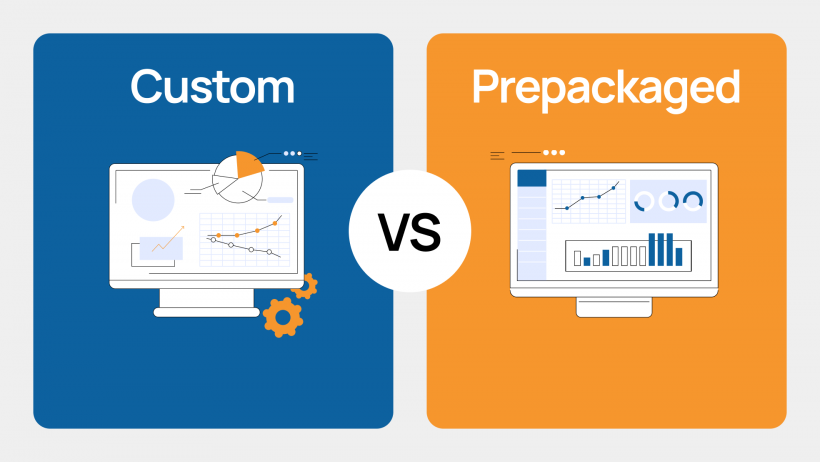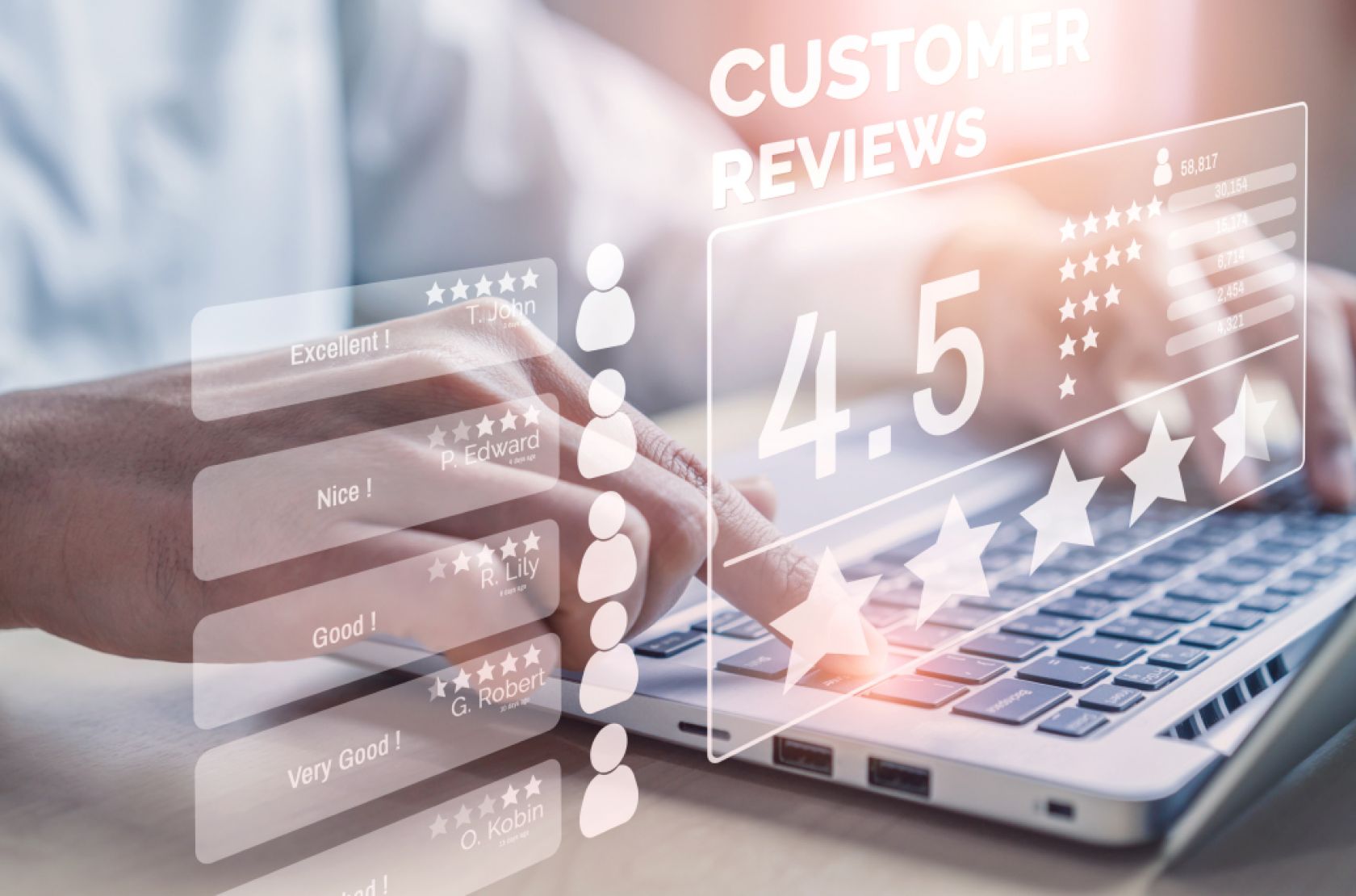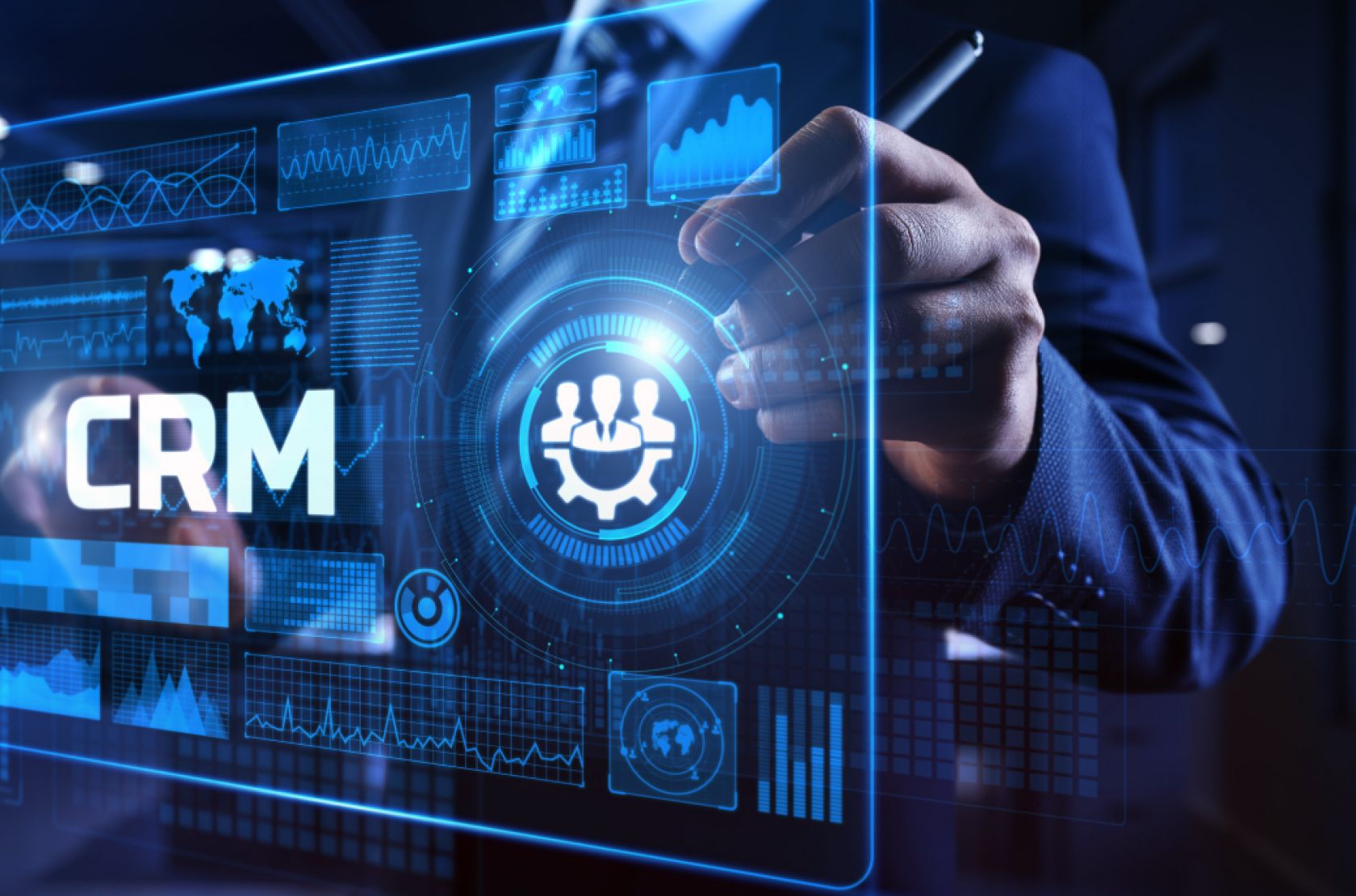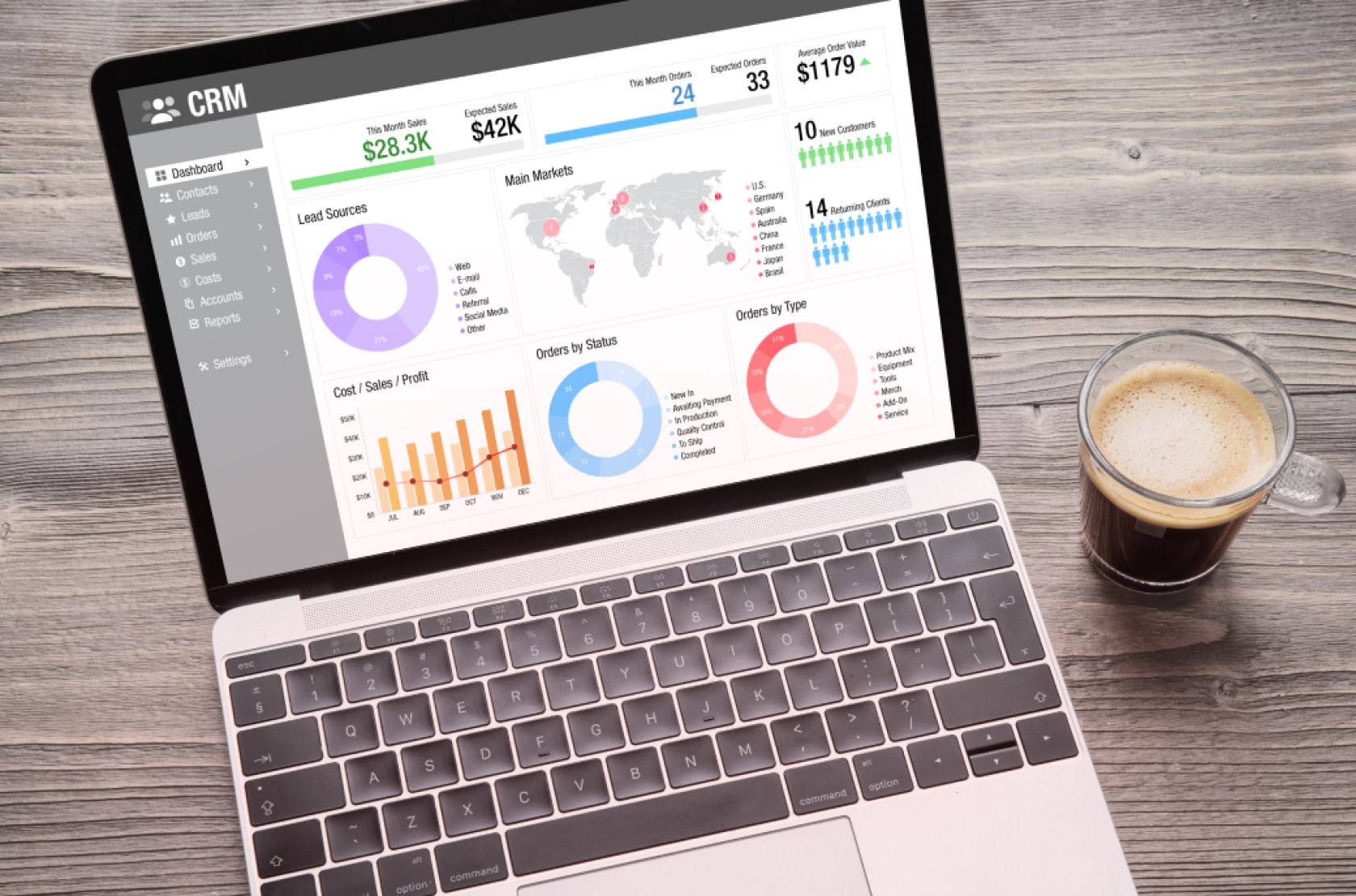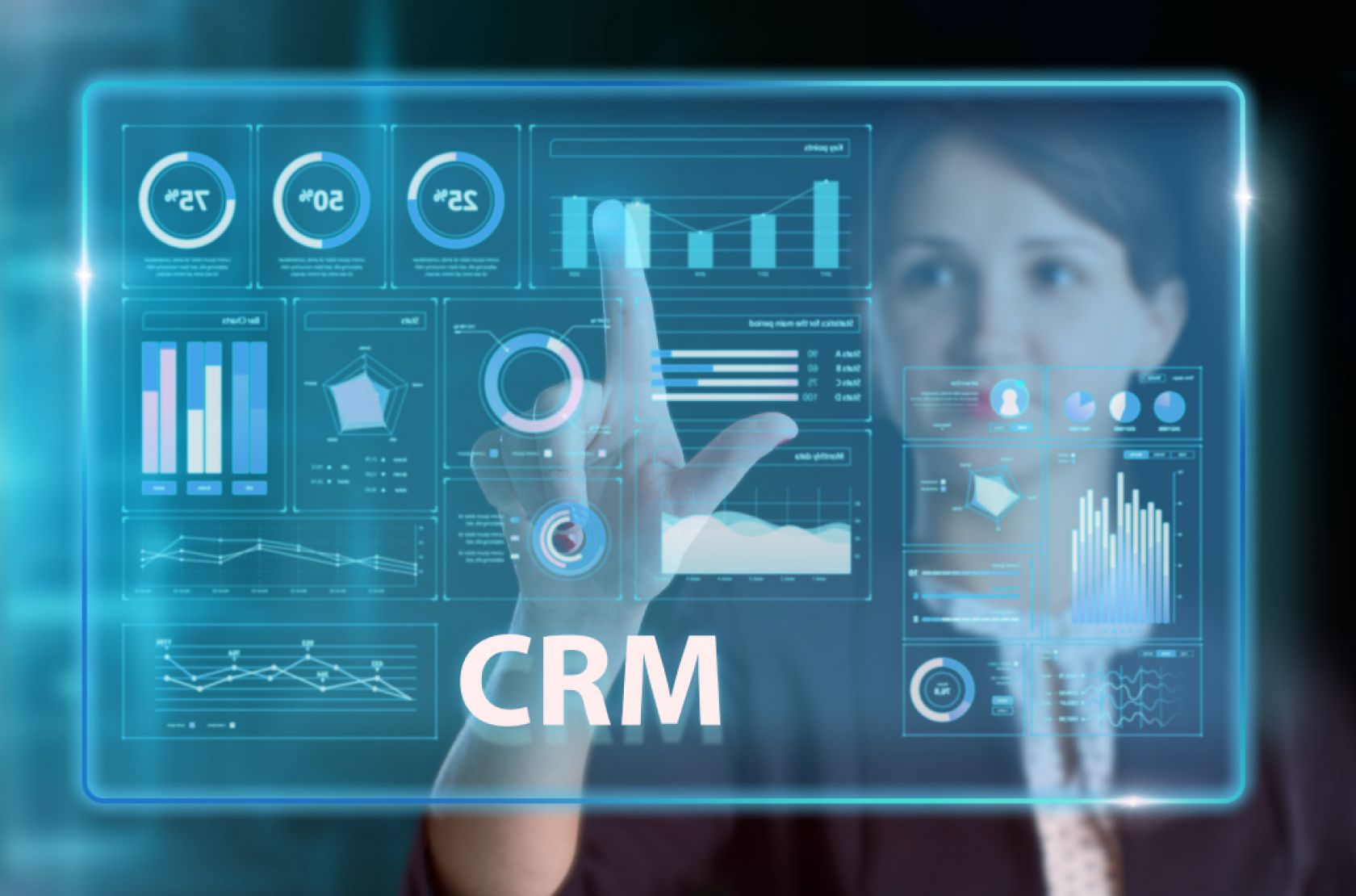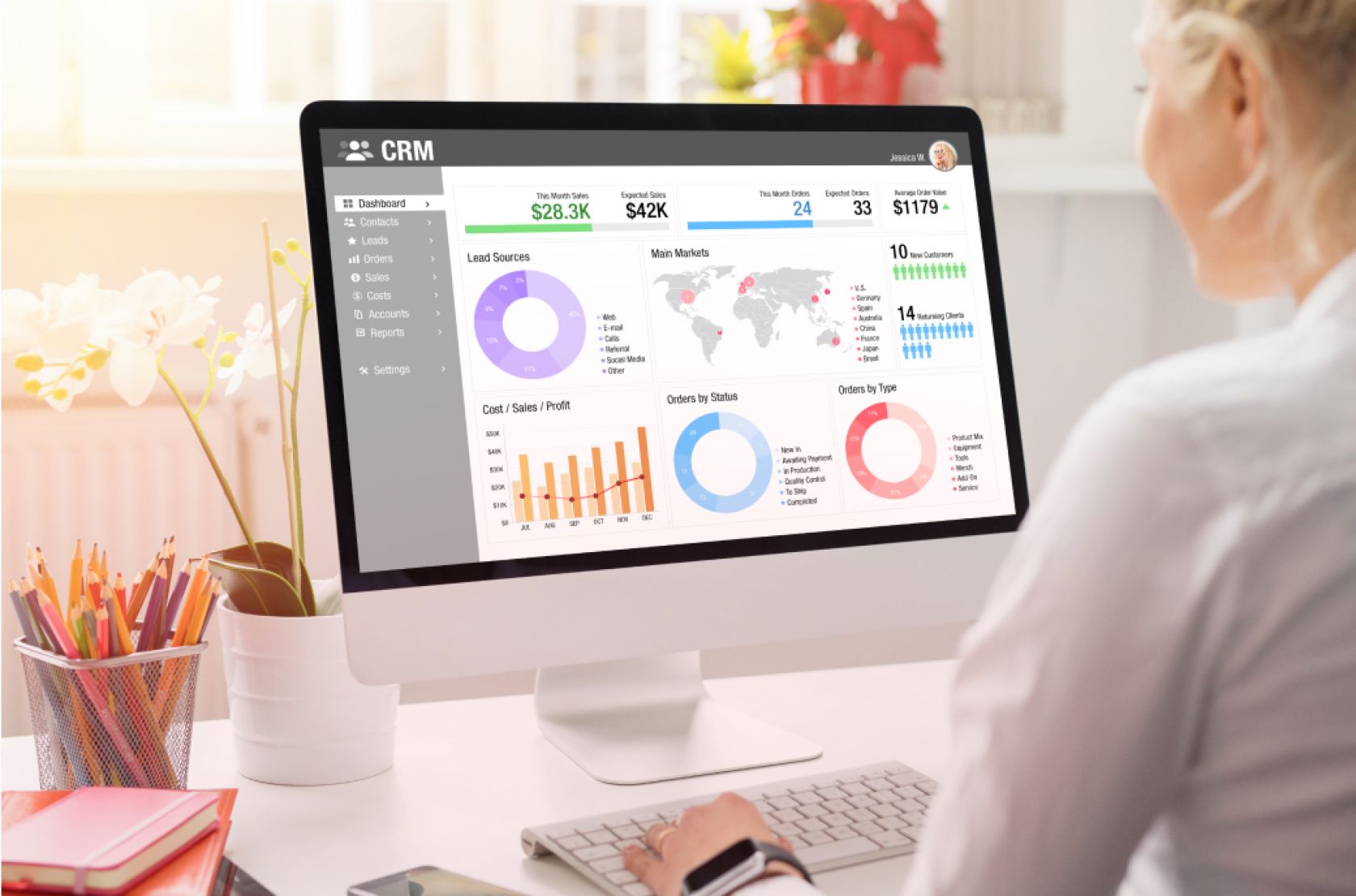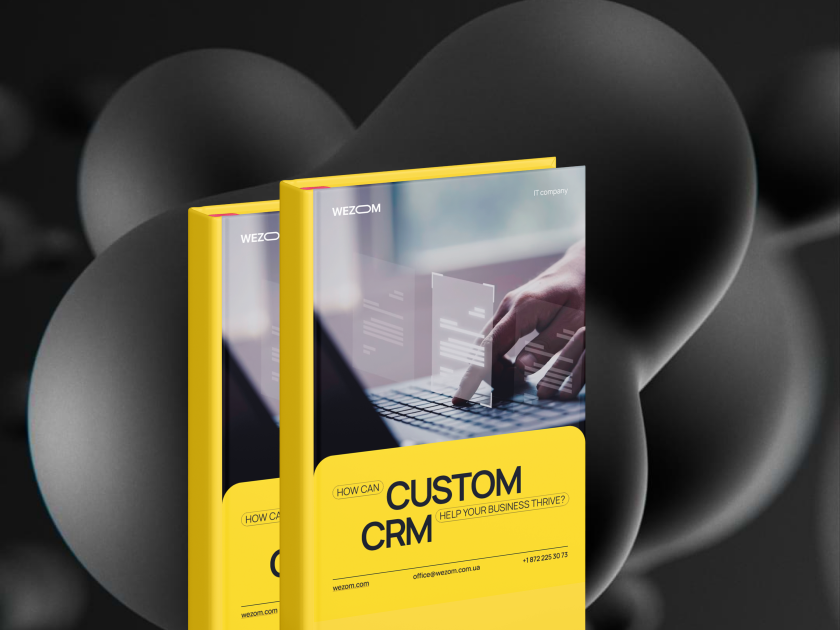How much are you familiar with CRM platforms, and particularly with logistics CRM?
Customer relationship management solutions are software whose major goal is to help companies to manage the full cycle of their relationships with prospects and customers.
CRM solutions are one of the tech products that are widely represented in the market; but at the same time, ones that are quite troublesome when it comes to customization for each business or vertical. Besides basic operations each company would have their own specifications that require a custom dashboard, clients’ portal, order calculation or workflow.
All businesses, from small to enterprises need a system where they process all their daily operations. Sometimes companies would need several solutions - which, of course, makes things more complicated.
To prove a point of diverse tasks, we could divide CRMs by type of functional:
- Automate operations. One of CRM's goals is to connect the dots between companies' departments: marketing, sales, customer success, support, etc. For this purpose, CRM platforms keep track of clients’ profiles, record orders, store contracts, update data in real-time and such.
- Collaboration. To interact successfully with customers at different stages, a business needs logistics CRM that synchronizes customer communication through different channels and keeps track of customers' life cycle. This enables all employees to be on the same page with workflows, what makes day-to-day operations seamless, even if team members change.
- Analytics. Modern business is all about data. Another expectation from a CRM platform is to be able to analyze your business metrics based on all data that CRM collects about a business. Based on the accumulated data, one can promptly generate reports that will provide a basis for setting short-term and long-term goals.
Driven by a reasonable desire to have all functions covered by one platform, companies are looking for a seamless one-stop solution that would combine functions mentioned above. The practice of many companies shows that in most cases it could be achieved only with CRM software development.
What makes a perfect CRM for logistics?
There is obviously a range of requirements that transport companies have from finding new customers to managing shipment and warehouse inventory. CRM for logistics must cover all business operations for companies to be efficient, optimize their time and costs. In the following paragraphs we would walk you through vital elements that logistics companies are looking for.
Tailored Data Management
Every business needs to think about marketing, sales, customer support, invoicing, reports and other. But let’s stop here. While every business does, they all have different algorithms, implementation time, calculations formulas, etc., that are used for operations. For example, both medical and transportation companies need to communicate with stakeholders & customers, invoice services, report activities. However, it goes without saying that the data they collect would be different. And while both businesses use CRM, their CRM would look and function completely different.
That’s one of the main reasons companies lean towards custom CRM software. Nobody but a business itself knows its needs better. In this manner, custom logistics CRM would provide information on everything from the logistics industry, it would contain custom forms and templates that employers use in their daily operations. For example, a template will contain all forms that a sales representative asks a potential customer before providing a quote. With drop-down selection of answers for the most typical questions it makes it faster for an employer to complete a new profile. And further, it’s easy to review and compare without having to search through loads of disorganized mass data. Businesses could feel the difference when they have all required fields for crucial parts of customer forms and can avoid confusing free-form text fields.
Tailored data management starts with a custom CRM, where employers could effortlessly organise their operations and document flows, create and filter orders by type of transport, payment status, BOL number etc.
Customer Profiles
Customer profiles are the common practice of understanding “perfect customers” by grouping existing customers based on similar goals and characteristics. You might have heard people also referring to them as buyer personas.
You might wonder, what does it have to do with CRM? Customer profiles are an important part of a logistics CRM as it ensures proper tracking of leads, prospects and customers. As a marketing team gets a new lead and adds it to the system, CRM starts tracking all activities relevant to this lead. Further, based on the accumulated data, it could give valuable insights into customer behaviour and their buying habits.
Logistics businesses could benefit from CRM customer profiles both when they know their perfect customer and which marketing tools to use, but also when a company is in the process of defining their target clients.
Thus, if a business already knows its buyer personas it could use customer profiles segmentation for narrowing down to its prospective audience. Using demographic segmentation they can single out the customer segment that is most interested and likely to buy their services. Once knowing that, it takes less effort to direct all marketing and sales efforts solely on this group.
In case when buyer personas are not known yet, customers' profiles could be a way to learn it by filtering successfully closed deals and comparing their demographic or other characteristics such as age, location, gender, education, average income, occupation, household types, hobbies, etc.
Centralized Customer Base
Could you answer straight away, how many business operations your company deals with? It’s probably hard. Try to think about how many departments a company has. This one should be more realistic to think fast of. Imagine that each department has several tools to keep their operations running. It inevitably leads to multiple screens, constant switching between windows, irritation over not being able to find a needed one quickly, and the first, discrepancies in data in different systems that leads to mistakes. It's a nightmare, isn’t it?
This is one of the business challengers that custom CRM solves for logistics. Their goal is to unify all data into one comprehensive system that everyone in a company can use to track all order relevant details. And logistics businesses have a lot of versatile data. From commercial offers with calculations and payment data, to delivery processes with GPS & vehicles tracking, cargo details, fuel management, etc.
When building a transportation CRM, developers ensure that customers employees, in different user roles, could easily access needed data from a control panel, from both the desktop and mobile versions. The undeniable benefit of CRM is that all fleet- or warehouse-related data can be presented most consistently and intuitively. Whether companies want to check their overall fuel consumption over a time period or the status of an individual vehicle, it can be accessible with just a few clicks.
Workflow
SaaS software solutions often miss the middle ground. Prepackaged CRM vendors tend to either provide loads of extra details, which companies spend hours removing, like unnecessary fields in customer forms; or they rather omit important details that customers look for. In either case, companies end up having to compromise, sometimes to the detriment of comfort in business processes. For example, by putting information into comments instead of drop-down fields, or creating extra forms to complete with data. Some companies try to negotiate changes or extra integrations, but it doesn’t always end well.
As it is built for specific logistics business operations, custom-built CRM minimizes time your employees spend on customizing and filling forms, streamlines the generating of quotes & proposals, giving estimates and running calculations. It is especially beneficial when companies need to estimate a final price or plan a delivery route. As a custom set form will obviate the need to switch to another tool or an excel sheet to make a calculation separately and then fill it in CRM.
A significant CRM benefit is that going with a custom solution saves a deal of time and unsuccessful experiments. Describing what their needs are, a company gets an impecably tailored solution to manage all workflows, whether it is route planning, shipment, flee or warehouse inventory.
Integrations
CRM is not a stand-alone solution. Apart from keeping centralized customer information, custom CRM software provides a range of integrations with business existing custom solutions or 3rd party tools. CRM software development allows to integrate effectively with any other logistics software, including fleet management, warehouse & inventory management, documentation tracking, stock control, accounting apps, etc. With the help of custom logistics integrations businesses can deliver faster, cutting on overall expenses, time & human resources.
Analytics for the Management
Robust analytics is one of the important CRM that stands behind all cost-effective and practical decision-making. Collecting and unifying prospects' and customers' data, CRM assists logistics firms in monitoring marketing and sales efforts. With the variety of data breakdowns visualized in modern dashboards businesses can get useful insights into customers' needs and behaviour.
Obviously, it is not only marketing and sales data that CRM platforms handle. Logistics CRM goes further beyond that, managing and analysing quotes, delivery time, fuel consumption, etc. With logistics CRM companies should be able to collect and demonstrate the essential fleet metrics to ignite valuable insights that further optimize your logistics processes. Based on the data, it is easy to preset custom reports and seamlessly review them filtering factors like transport mode, type of transit, routes, etc. For example for fleet management, your CRM should provide visual data on maintenance, fuel consumptions, mileage summaries, or driver violations among the most common things.
Customer Service
Custom-built CRM is also a huge step toward better customer service. Centralizing all customer data you ensure that you have control over all business processes.
Often with a custom CRM, companies could provide a high-level customer experience by creating partner portals where they store all relevant to their agreement information. It ensures fast communication on any issue and also adds extra transparency to the business relations.
Besides maintaining friendly customer relations, businesses also prove themselves a reliable business partner when they proactively react to issues related to business issues, for example, shipping status. Logistics CRM can automatically notify customers of any unforeseen changes in delivery, update the route, fuel consumption or any other cargo details. For the utmost customer experience many companies also complement with mobile applications, that are particularly important for drivers or personnel at warehouses.
Excellency in automation of logistics notifications greatly depends on specifically designed for logistics workflows, whose creation requires involvement of industry experts. In case of custom development, it could be a company representative who knows the operations upside-down.
Overview
CRM is an essential component of any business, no matter its size. In comparison to ready-made solutions that often do not fully meet business requirements, a custom CRM collects, structures and helps analyze information about the various business processes. For a long-term perspective logistics companies better look into building a custom CRM specialized for their business processes.
At Wezom, we specialize in developing custom software for logistic business and supply chain processes. We design and build powerful TMS, CRM, E-Commerce, and ERP systems for desktop, iOS, and Android platforms. Our apps have proven to optimize businesses operational performance and reduce total expenses.
We make steps much further than just a “packaged solution”. We approach every project individually listening to businesses' needs and suggesting the ultimate solution. We pay attention not only to the functionality of the panel, but also to the convenience of its interface. Therefore, you will be able to quickly master all the features of the program, even if there is a huge number of them.
Curios to try? Drop us a few words about your tech needs, and we will come back with a solution.

